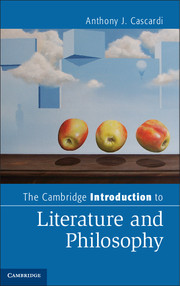Book contents
- Frontmatter
- Contents
- Acknowledgments
- Introduction
- Part I Questions of Truth and Knowledge
- Chapter 1 The “Ancient Quarrel”
- Chapter 2 Action, Imitations, Conventions of Make-Believe
- Chapter 3 The Single Observer Standpoint and Its Limits
- Chapter 4 Contingency, Irony, Edification: Changing the Conversation about Truth
- Part II Questions of Value
- Part III Questions of Form
- Afterword Limits
- Glossary of Keywords
- Notes
- Index
- References
Chapter 2 - Action, Imitations, Conventions of Make-Believe
Published online by Cambridge University Press: 05 June 2014
- Frontmatter
- Contents
- Acknowledgments
- Introduction
- Part I Questions of Truth and Knowledge
- Chapter 1 The “Ancient Quarrel”
- Chapter 2 Action, Imitations, Conventions of Make-Believe
- Chapter 3 The Single Observer Standpoint and Its Limits
- Chapter 4 Contingency, Irony, Edification: Changing the Conversation about Truth
- Part II Questions of Value
- Part III Questions of Form
- Afterword Limits
- Glossary of Keywords
- Notes
- Index
- References
Summary
It would be hard to think of two philosophers so close to one another in so many ways whose ideas about literature – and especially whose ideas about truth in relation to literature – are nonetheless more different than Plato and Aristotle. Likewise, it would be hard to imagine two philosophers more divergent in their approach to the vexing question of mimesis, which is almost always, it seems, a neighbor to questions of truth when literature is involved. While Aristotle was a student of Plato’s and ultimately something of a Platonist when it comes to the difference between sense-perception and true “scientific” knowledge, he was also clear to distinguish his thinking from that of his teacher. Likewise, Aristotle’s way of writing is strikingly different from Plato’s. Unlike Plato, who wrote through the multiple voices of characters in dialogue form, Aristotle produced what are for all intents and purposes philosophical tracts originating mostly in lectures transcribed by others. His works are – in the words of one modern commentator – dry and formal: “His language bristles with technicalities, makes little appeal to the emotions, disdains graces of style, and frequently defies the simplest rules of composition.” Reading Plato, we think we may be reading a kind of literature, and in fact we are. The hyperbolic speeches in parts of Symposium, the description of the “descent” to the port of Piraeus to celebrate the cult of a goddess at the very beginning of the Republic, the motif of the cicadas in Phaedrus, and many more are all clear signs of a discourse that is as literary as it is philosophical. Literature is part of the fabric of the Republic even if Plato proposes excluding it from the ideal state.
- Type
- Chapter
- Information
- The Cambridge Introduction to Literature and Philosophy , pp. 28 - 40Publisher: Cambridge University PressPrint publication year: 2014

